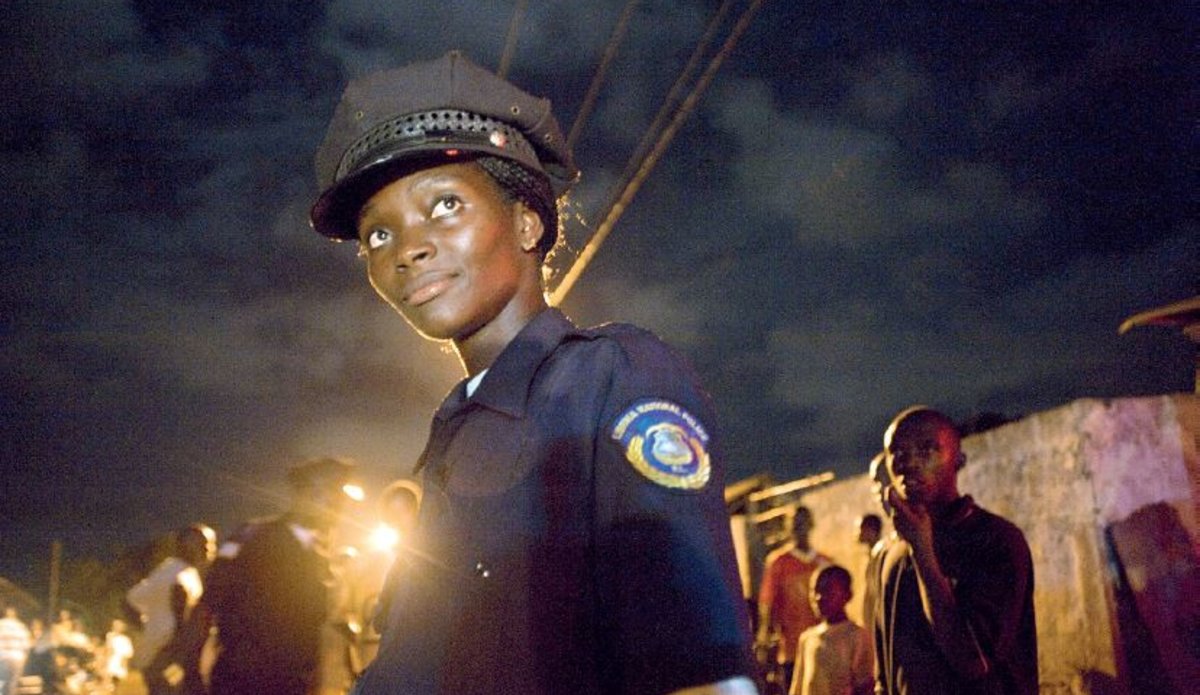The story of UNMIL [Book]: Generating gender diversity and sensitivity within security sector institutions

For the security sector to be effective it must not only be sensitive to the needs of the entire population, but should also be representative of the population. While the Liberia National Police and Liberian Immigration Service have a respectable proportion of female personnel (18.6 per cent and 28.8 per cent respectively), only 4 per cent of the Armed Forces of Liberia are women.
Taking its lead from UN Security Council resolution 1325 which requires that women should be part of the security sector and that the sector be gender responsive, UNMIL has worked with the Government of Liberia to establish gender units, or focal points in all security institutions. UNMIL also supported the 2016 Senior Leadership Conference on Gender and Security, where the Ministry of Justice decided to join efforts with the ministries of National Defense and Gender to establish a Gender and Security Sector National Taskforce and commit to creating gender offices in all security sector institutions. The establishment of the Taskforce was a milestone. It brought together the gender coordinators of security institutions to discuss and coordinate the implementation of UNSC 1325 and find creative solutions for the challenges that women face in the security sector. The Taskforce is developing programmes to increase the participation of women in the reform of security institutions and to mainstream gender in security operations.
A second conference in December 2017 discussed how to increase the participation of women in security sector reform decisionmaking, planning, implementation and oversight. Also in 2017, the Government, in collaboration with the University of Liberia, launched an advanced course on Women, Peace and Security Studies for the gender focal points of security institutions and, in early 2018, established the first library in Liberia on Women, Peace and Security Studies.
Although Liberian security institutions have acknowledged that increasing the participation of women will improve operational effectiveness, enhance relationships with the public and promote a non-discriminatory work environment, more needs to be done. Increased attention, resources and political will are still required to fully implement the recommendations of the National Gender Policy (2017-2022) and National Security Strategy, as well as to meet the 30 per cent quota for women in the security sector stated in Liberia’s National Action Plan on resolution 1325.
 UN
UN United Nations Peacekeeping
United Nations Peacekeeping

![The story of UNMIL [Book]: Use of quick-impact project funding in the rule of law sector The story of UNMIL [Book]: Use of quick-impact project funding in the rule of law sector](https://unmil.unmissions.org/sites/default/files/styles/gallery_image_thumb/public/field/image/foja-qips.jpg?itok=roIzWFOQ)
![The story of UNMIL [Book]: Widening ownership of the security sector reform process The story of UNMIL [Book]: Widening ownership of the security sector reform process](https://unmil.unmissions.org/sites/default/files/styles/gallery_image_thumb/public/field/image/the_book-gn_2.jpg?itok=bAzlVxOW)


